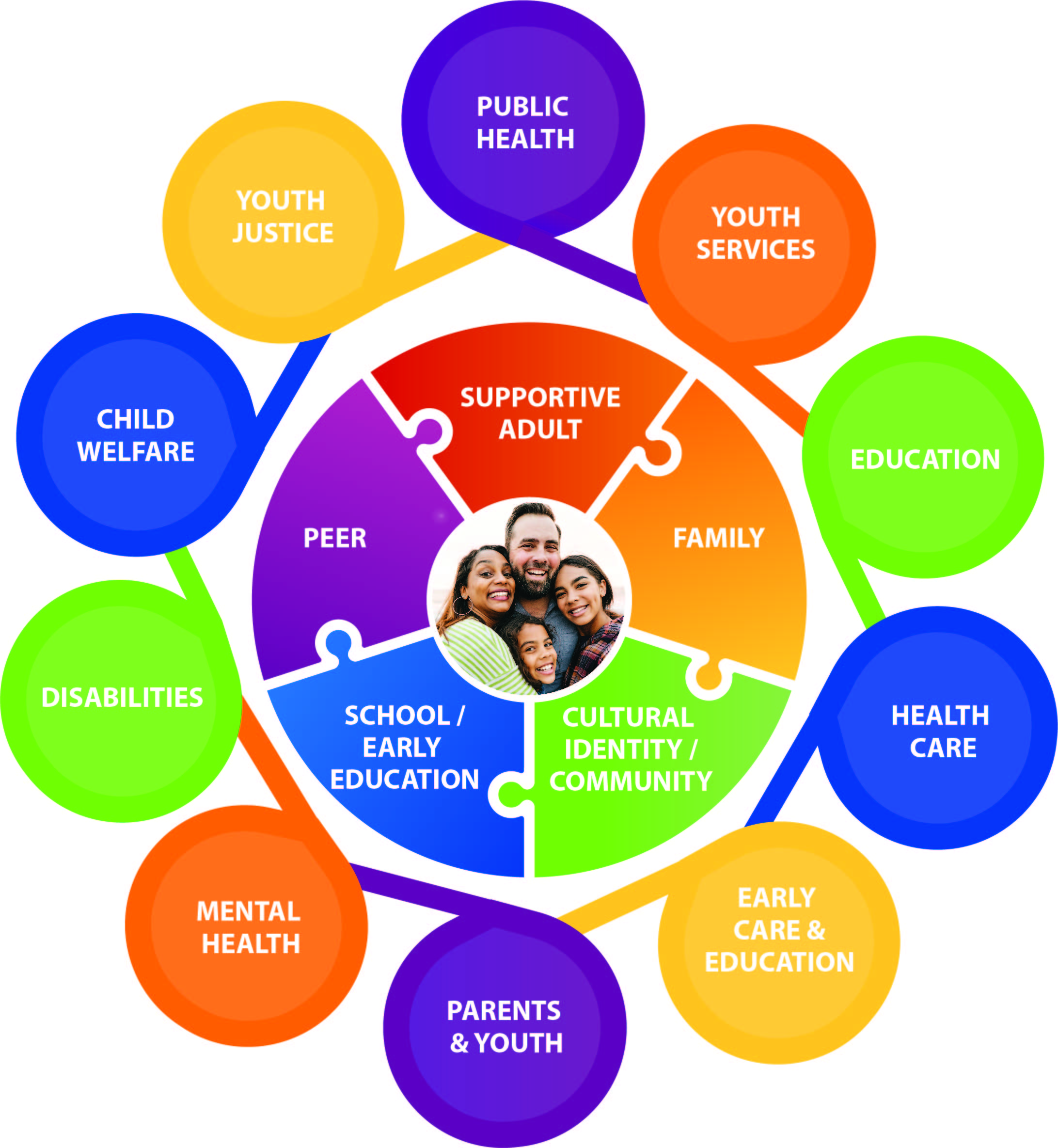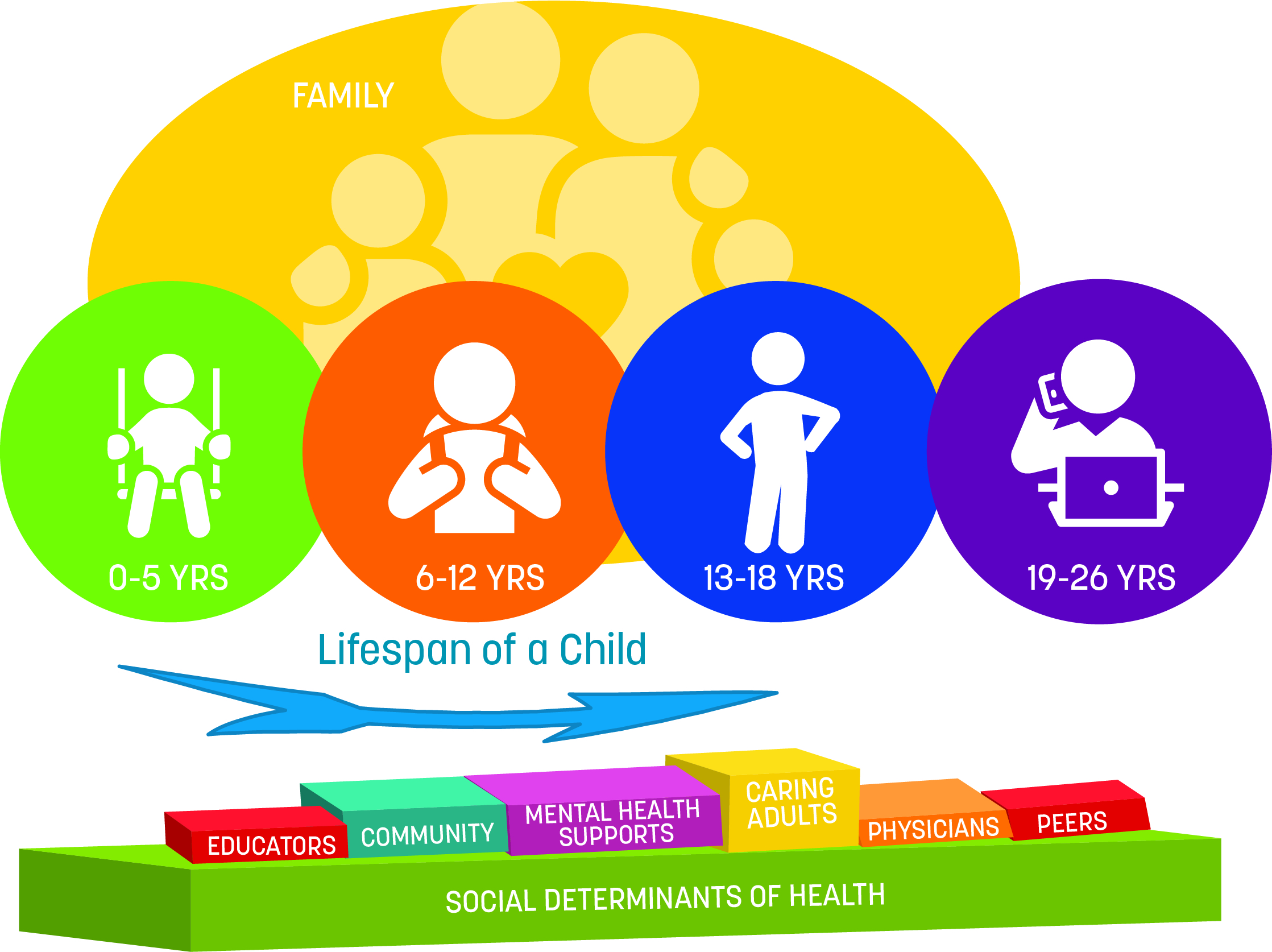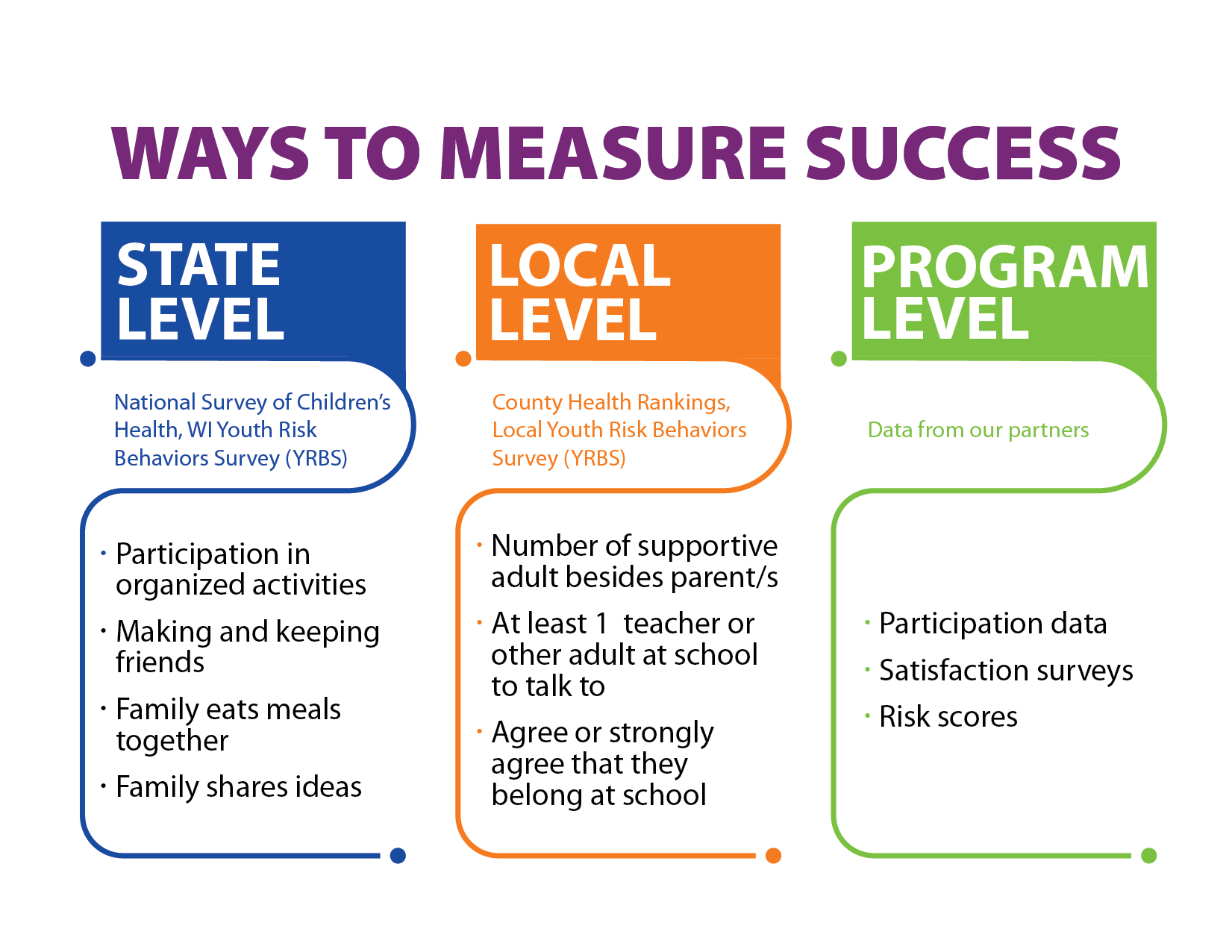Social connectedness is essential for learning the life skills that, from an early age, allow us to build, participate in, and maintain relationships. Through relationships we are cared for, feel we belong, and learn how to communicate.
OCMH Strategic Focus – Social Connectedness of Youth – Definition
Youth are socially connected when they are actively engaged in positive relationships where they feel they belong, are safe, cared for, valued, and supported.

Five Categories of Social Connectedness of Youth
We believe all organizations and individuals that touch children's mental health work can identify work they are already doing, or could do, in at least one of the following five categories: Family, Supportive Adult, Cultural Identity/Community, School/Early Education, and Peer.
Our Charge
Increasing the Social Connectedness of Youth offers tremendous promise for improving children's life skills and well-being. We are excited about the possibility of engaging a wide range of partners, from early education, state departments, community organizations to business, in addressing this agenda together.
 Upstream Work
Upstream Work
If relationships with parents/primary caregivers have been positive and consistent, a young person's foundation will be strong, and they will be better prepared to build relationships as they move through life. As children grow they also need connections with peers and other supportive adults to feel that they belong at school and in their community. Feeling accepted and having their culture accepted are crucial for young people in building this foundation and achieving success at school and in life.
Positive and strong social connections make for resilient youth that are able to better navigate mental health challenges.
Good Work Supporting Social Connectedness throughout Wisconsin
Throughout our state, organizations understand the value of social connections for our youth and are engaging in programs that support it. We want to highlight some of these organizations.
- Acceptional Minds: Helping students with Autism and similar conditions, and their families, navigate life with neurodiverse brains. Staff are dedicated to helping their families with the transition to a new lifestyle. Learn more: https://www.acceptionalminds.org/
- Boys & Girls Club of Greater Green Bay: Providing a safe, inviting, place for youth ages 7-17 to learn, grow, and have fun; with a focus on building relationships, the arts, social emotional learning, and working with the community. The Club staff focuses on building relationships with their youth and then moving to programs. They have dedicated Social Emotional Learning (SEL) staff. Learn more: https://www.bgcgb.org/
- Boys & Girls Club of Greater Milwaukee: Starting with a safe place to learn and play, efforts focus on relationship development, positive adult-to-youth interactions, and social emotional development (SED) to enhance young people's strengths and positive outcomes. SED coordinators run programs at the individual Clubs as well as work with Club staff to build their social emotional and trauma-sensitive skills. Club managers and staff are clear – their work is all about the kids they serve. Learn more: https://www.bgcmilwaukee.org/
- Family Resource Center St. Croix Valley: Providing education, resources, and support to families with children prenatal to kindergarten in Pierce, Polk, and St. Croix Counties. The Center is creating social connections through a variety of programs that focus on areas from parenting to special events. Learn more: https://frcscv.org/
- In a New Light Galley – Northwest Passage: Providing a therapeutic nature photography program and art gallery for students at Northwest Passage Residential Treatment Center. The program emphasizes skilled expressive arts training and nature immersion that empowers youth who are struggling with mental health issues to find beauty in the world that surrounds them, as well as in themselves. Learn more about In a New Light: https://nwpltd.org/inanewlight/. Learn more about Northwest Passage: https://nwpltd.org/.
- Mental Health Matters – Eau Claire and Chippewa Valley Counties: Building a community culture to support youth resilience and decrease depression among middle and high school age youth, the initiative has brought together over 20 partnering organizations to support actions that will improve youth mental health. One attendee noted a lot of organizations were working independently, doing their own thing. The initiative caused the groups to “row their boats" in one direction. Learn more: https://cvmentalhealthmatters.org/
- Racine Unified School District/Racine Collaborative for Children's Mental Health: The Academies of Racine preparing high school students for college and the workforce by providing real-world experiences with local businesses and professionals. The Academies offer small learning communities or pathways that provide real-world experiences with local businesses and professionals. Students select a pathway in their freshman year and study it for the next three years. Learn more: https://rusd.org/academics/academies-racine/about-academies
- Washburn County Mental Health Task Force: Identifying youth with unmet needs and connecting them with appropriate services. The task force developed a youth-wellness screen assessment and built a spectrum of services. Learn more: https://sites.google.com/view/washburncountycommunityprevent/mental-health-task-force

Measuring Success
To measure success, we will look to state, local, and program level measures. This includes data from the National Survey of Children's Health, Wisconsin Youth Risk Behavior Survey, and satisfaction surveys from program partners.
Impact Teams
Recent Collective Impact Teams focused on aspects of OCMH's strategic focus of Social Connectedness of Youth. Each developed a strategic action plan to support their goals. We encourage organizations and individuals throughout the state to review these action plans and implement action items that align with your work. See the individual Team Strategic Plans and goals:
- Cultural Identity/Community – Goal: Build community collaborations that provide opportunities for youth to connect to others and their culture, elevating youth voice in this work. See action plan.
- Family Team A – Goal: Family voice is at the center and authentically leads in service planning/delivery. See action plan.
- Family Team B – Goal: Support the early childhood/childcare workforce and professionals serving this population with children's mental health/well-being education and resources. See action plan.
- Supportive Adult – Goal: Equip adults to form supportive relationships with youth, including youth voice in this work. See action plan.
We welcome people and organizations focusing on families and children's mental health to join this effort for increased collaboration and coordination. For more information about the Children's Mental Health Collective Impact work, please contact us at OCMH@wisconsin.gov.
If you have difficulty accessing our materials, or using our website, please let us know by emailing OCMH@wi.gov. We take digital accessibility seriously and welcome the opportunity to remove any barriers in accessing content.